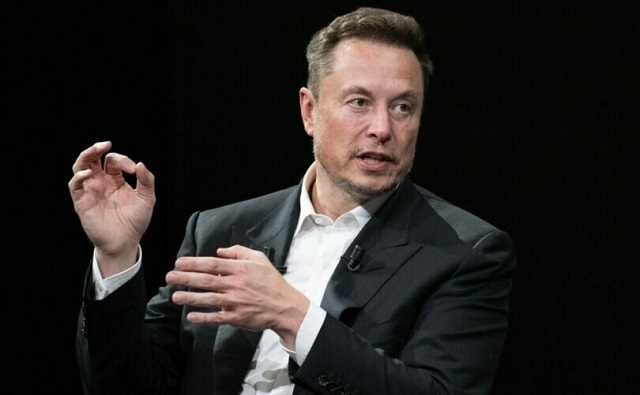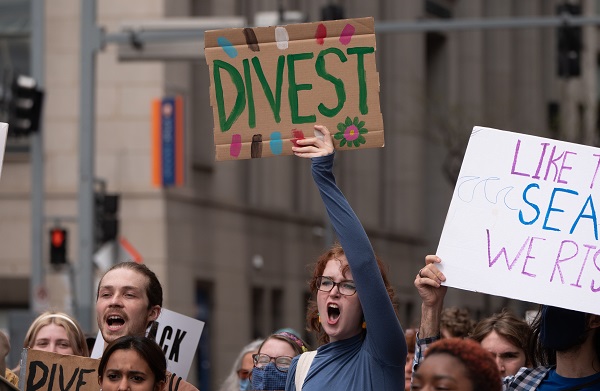Business
Elon Musk says X will disobey Brazil court order to censor accounts, calls on judge to be impeached

Elon Musk, Frederic Legrand – COMEO/Shutterstock
From LifeSiteNews
Elon Musk stated that his social media platform will likely be forced to shut down operations in Brazil as a result of non-compliance with the court order, but argued that ‘principles matter more than profit.’
Elon Musk has pushed back on demands made in a Brazilian court order to censor certain accounts and called for the impeachment of a leading Supreme Court judge.
On Saturday, April 6, X (formerly known as Twitter) announced that it “has been forced by court decisions to block certain popular accounts in Brazil” under the threat of daily fines if the company fails to comply.
Shortly after the announcement, X owner Elon Musk said that the company would resist these demands, even if it had to shut down its operations in Brazil.
“We are lifting all restrictions,” the billionaire wrote. “This judge has applied massive fines, threatened to arrest our employees, and cut off access to 𝕏 in Brazil.”
“As a result, we will probably lose all revenue in Brazil and have to shut down our office there. But principles matter more than profit.”
In another post on X, Musk announced that his social media platform would publish the demands made by Supreme Court judge and head of Brazil’s Superior Electoral Court Alexandre de Moraes. Musk also called for de Moraes to be impeached and referred to him as “Brazil’s Darth Vader.”
“Coming shortly, 𝕏 will publish everything demanded by @Alexandre [de Moraes] and how those requests violate Brazilian law. This judge has brazenly and repeatedly betrayed the constitution and people of Brazil. He should resign or be impeached. Shame @Alexandre, shame.”
— Te𝕏asLindsay™ (@TexasLindsay_) April 7, 2024
A few days prior, journalist Michael Shellenberger published the “Twitter Files Brazil,” which showed how the Deep State, led by de Moraes, had interfered in the 2022 presidential election by pressuring social media platforms to ban accounts that supported sitting president Jair Bolsonaro or questioned the electoral systems.
READ: New ‘Twitter Files’ show how Brazil’s deep state interfered in the 2022 presidential election
Shellenberger wrote:
On March 30, 2022, the day after de Moraes took office as president of the TSE, the TSE mandated Twitter to, within a week and under the threat of a daily fine of 50,000 BRL (US$ 10,000), supply data on the monthly trend statistics for the hashtags #VotoImpressoNAO (“PrinteVoteNo”) and #VotoDemocraticoAuditavel (“DemocraticAuditableVote”).
In 2022, the court coerced Twitter into censoring several accounts, including two elected House members, for allegedly spreading “disinformation” under the threat of heavy fines. Twitter initially pushed back on these requests and appealed the orders but ended up complying with some of the requests due to the pressure of the heavy penalties.
Under Musk’s leadership, the social media platform appears to reject the censorship demands made by de Moraes and risk the shutdown of the company in Brazil.
“At any moment, Brazil’s Supreme Court could shut off all access to X/Twitter for the people of Brazil,” Shellenberger wrote on April 7 while reporting from Brazil. “It is not an exaggeration to say that Brazil is on the brink of dictatorship at the hands of a totalitarian Supreme Court Justice named Alexandre de Moraes.”
“President Lula da Silva is participating in the push toward totalitarianism,” he added. “Since taking office, Lula has massively increased government funding of the mainstream news media, most of which are encouraging increased censorship.”
In response to Musk’s announcement to disobey the court order, Brazil’s Attorney General Jorge Messias demanded “urgent regulations” of social media platforms. According to the Financial Times, Messias said, “It is urgent to regulate social networks.”
“We cannot live in a society in which billionaires domiciled abroad have control of social networks and put themselves in a position to violate the rule of law, failing to comply with court orders and threatening our authorities,” he added.
Musk called on users in Brazil to download and use a VPN (virtual private network) to be able to use the social media platform, should the government restrict access to X.
Automotive
The EV ‘Bloodbath’ Arrives Early

 From the Daily Caller News Foundation
From the Daily Caller News Foundation
By David Blackmon
Ever since March 16, when presidential candidate Donald Trump created a controversy by predicting President Joe Biden’s efforts to force Americans to convert their lives to electric-vehicle (EV) lifestyles would end in a “bloodbath” for the U.S. auto industry, the industry’s own disastrous results have consistently proven him accurate.
The latest example came this week when Ford Motor Company reported that it had somehow managed to lose $132,000 per unit sold during Q1 2024 in its Model e EV division. The disastrous first quarter results follow the equally disastrous results for 2023, when the company said it lost $4.7 billion in Model e for the full 12-month period.
While the company has remained profitable overall thanks to strong demand for its legacy internal combustion SUV, pickup, and heavy vehicle models, the string of major losses in its EV line led the company to announce a shift in strategic vision in early April. Ford CEO Jim Farley said then that the company would delay the introduction of additional planned all-electric models and scale back production of current models like the F-150 Lightning pickup while refocusing efforts on introducing new hybrid models across its business line.
General Motors reported it had good overall Q1 results, but they were based on strong sales of its gas-powered SUV and truck models, not its EVs. GM is so gun-shy about reporting EV-specific results that it doesn’t break them out in its quarterly reports, so there is no way of knowing what the real bottom line amounts to from that part of the business. This is possibly a practice Ford should consider adopting.
After reporting its own disappointing Q1 results in which adjusted earnings collapsed by 48% and deliveries dropped by 20% from the previous quarter, Tesla announced it is laying off 10 percent of its global workforce, including 2,688 employees at its Austin plant, where its vaunted Cybertruck is manufactured. Since its introduction in November, the Cybertruck has been beset by buyer complaints ranging from breakdowns within minutes after taking delivery, to its $3,000 camping tent feature failing to deploy, to an incident in which one buyer complained his vehicle shut down for 5 hours after he failed to put the truck in “carwash mode” before running it through a local car wash.
Meanwhile, international auto rental company Hertz is now fire selling its own fleet of Teslas and other EV models in its efforts to salvage a little final value from what is turning out to be a disastrous EV gamble. In a giant fit of green virtue-signaling, the company invested whole hog into the Biden subsidy program in 2021 with a mass purchase of as many as 100,000 Teslas and 50,000 Polestar models, only to find that customer demand for renting electric cars was as tepid as demand to buy them outright. For its troubles, Hertz reported it had lost $392 million during Q1, attributing $195 million of the loss to its EV struggles. Hertz’s share price plummeted by about 20% on April 25, and was down by 55% for the year.
If all this financial carnage does not yet constitute a “bloodbath” for the U.S. EV sector, it is difficult to imagine what would. But wait: It really isn’t all that hard to imagine at all, is it? When he used that term back in March, Trump was referring not just to the ruinous Biden subsidy program, but also to plans by China to establish an EV-manufacturing beachhead in Mexico, from which it would be able to flood the U.S. market with its cheap but high-quality electric models. That would definitely cause an already disastrous domestic EV market to get even worse, wouldn’t it?
The bottom line here is that it is becoming obvious even to ardent EV fans that US consumer demand for EVs has reached a peak long before the industry and government expected it would.
It’s a bit of a perfect storm, one that rent-seeking company executives and obliging policymakers brought upon themselves. Given that this outcome was highly predictable, with so many warning that it was in fact inevitable, a reckoning from investors and corporate boards and voters will soon come due. It could become a bloodbath of its own, and perhaps it should.
David Blackmon is an energy writer and consultant based in Texas. He spent 40 years in the oil and gas business, where he specialized in public policy and communications.
Business
UN plastics plans are unscientific and unrealistic

News release from the Coalition of Concerned Manufacturers and Businesses of Canada
“We must focus on practical solutions and upgrading our recycling infrastructure, not ridiculous restrictions that will harm our health care system, sanitary food supply, increase costs and endanger Canadians’ safety, among other downsides.”
This week Ottawa welcomes 4,000 delegates from the United Nations to discuss how they will oversee a reduction and even possible elimination of plastics from our lives. The key problem is no one has ever figured out how they will replace this essential component of our modern economy and society. The Coalition of Concerned Manufacturers and Businesses of Canada (CCMBC) has launched an information campaign to discuss the realities of plastic, how it contributes massively to our society and the foolishness of those who think plastics can be eliminated or greatly reduced without creating serious problems for key industries such as health care, sanitary food provision, many essential consumer products and safety/protective equipment, among others. CCMBC President Catherine Swift said “The key goal should be to keep plastics in the economy and out of the environment, not eliminate many valuable and irreplaceable plastic items. The plastics and petrochemical industries represent about 300,000 jobs and tens of billions contribution to GDP in Canada, and are on a growth trend.”
The UN campaign to ban plastics to date has been thwarted by reality and facts. UN efforts to eliminate plastics began in 2017, motivated by such terrible images as rivers with massive amounts of floating plastic and animals suffering from negative effects of plastic materials. Although these images were dramatic and disturbing, they do not represent the big picture of what is really happening and do not take into account the many ways plastics are hugely positive elements of modern society. Swift added “Furthermore, Canada is not one of the problem countries with respect to plastics waste. Developing countries are the main culprits and any solution must involve helping the leading plastics polluters find workable solutions and better recycling technology and practices.”
The main goal of plastic is to preserve and protect. Can you imagine health care without sanitary, flexible, irreplaceable and recyclable plastic products? How would we keep our food fresh, clean and healthy without plastic wraps and packaging? Plastic replaces many heavier and less durable materials in so many consumer products too numerous to count. Plastics help the environment by reducing food waste, replacing heavier materials in automobiles and other products that make them more energy-efficient. Many plastics are infinitely recyclable and innovations are taking place to improve them constantly. What is also less known is that most of the replacements for plastics are more expensive and actually worse for the environment.
Swift stated “Environment Minister Steven Guilbeault has been convinced by the superficial arguments that plastics are always bad despite the facts. He has pursued a campaign against all plastics as a result, without factoring in the reality of the immense value of plastic products and that nothing can replace their many attributes. Fortunately, the Canadian Federal court overturned his absurd ban on a number of plastic products on the basis that it was unscientific, impractical and impinged upon provincial jurisdiction.” Sadly, Guilbeault and his Liberal cohorts plan to appeal this legal decision despite its common-sense conclusions. Opinion polls of Canadians show that a strong majority would prefer this government abandon its plastics crusade at this point, but history shows these Liberals prefer pursuing their unrealistic and costly ideologies instead of policies that Canadians support.
The bottom line is that plastics are an essential part of our modern society and opposition has been based on erroneous premises and ill-informed environmentalist claims. Swift concluded “Canada’s record on plastics is one of the best in the world. This doesn’t mean the status quo is sufficient, but we must focus on practical solutions and upgrading our recycling infrastructure, not ridiculous restrictions that will harm our health care system, sanitary food supply, increase costs and endanger Canadians’ safety, among other downsides.” The current Liberal government approach is one that has no basis in fact or science and emphasizes virtue-signaling over tangible and measurable results. Swift noted “The UN’s original founding purpose after World War II was to prevent another world war. Given our fractious international climate, they should stick to their original goal instead of promoting social justice warrior causes that are unhelpful and expensive.”
The CCMBC was formed in 2016 with a mandate to advocate for proactive and innovative policies that are conducive to manufacturing and business retention and safeguarding job growth in Canada.
SOURCE Coalition of Concerned Manufacturers and Businesses of Canada
-

 Energy2 days ago
Energy2 days agoAnti-LNG activists have decided that they now actually care for LNG investors after years of calling to divest
-

 Censorship Industrial Complex2 days ago
Censorship Industrial Complex2 days agoDesperate Liberals move to stop MPs from calling Trudeau ‘corrupt’
-

 Brownstone Institute2 days ago
Brownstone Institute2 days agoIs the Overton Window Real, Imagined, or Constructed?
-

 conflict2 days ago
conflict2 days agoCol. Douglas Macgregor torches Trump over support for bill funding wars in Ukraine and Israel
-

 Frontier Centre for Public Policy1 day ago
Frontier Centre for Public Policy1 day agoThe end of Canada: The shift from democracy to totalitarian behavior in the ‘pandemic era’
-

 Energy1 day ago
Energy1 day agoReflections on Earth Day
-

 Alberta17 hours ago
Alberta17 hours agoAlberta rejects unconstitutional cap on plastic production
-

 Great Reset2 days ago
Great Reset2 days agoTerrorists Welcome: Chronic counterterrorism lapses at the border demand investigation





